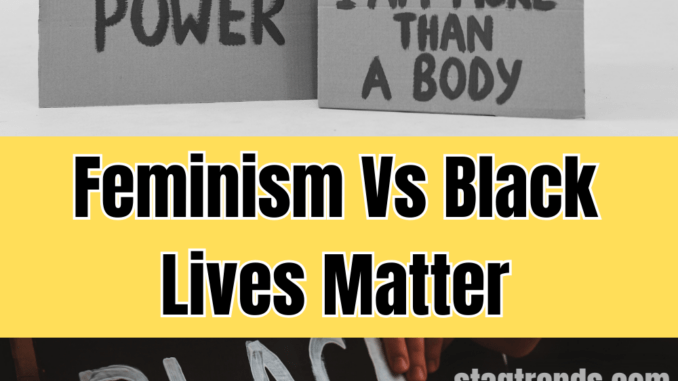
Meaning Of Feminism | Defination
Feminism, at its core, is about equality between the sexes. This means social, economic, and political equality.
Here’s a breakdown of the core aspects of feminism:
- Equality: Feminists believe that people shouldn’t be disadvantaged or excluded based on their gender.
- Social Equality: This means dismantling social norms and expectations that limit opportunities for one gender or the other. For example, challenging the idea that women are primarily caregivers or that men shouldn’t express emotions.
- Economic Equality: This means ensuring equal pay for equal work, and that women have the same opportunities for education, career advancement, and ownership of property.
- Political Equality: This means women having equal rights to vote, hold office, and participate in the political process.
Feminism is a broad movement with various branches that focus on different aspects of gender inequality. Some important points to remember:
- Global Movement: Though arising in the West, feminism has worldwide variations and addresses issues faced by women across cultures.
- Not Anti-Men: Feminism isn’t about putting women above men, but creating a level playing field.
- Intersectionality: Many feminists recognize that women experience oppression differently based on race, class, sexual orientation, etc.
Feminism Vs Black Lives Matter
Imagine a world where a woman can walk home at night without fear, and a Black man can jog in the park without his life hanging in the balance. These are the dreams that fuel two powerful movements: Feminism and Black Lives Matter. While their goals might seem separate, their roots are intertwined in the fight for justice and equality. Let’s explore how these movements, though distinct, share a powerful common purpose.
While feminism and Black Lives Matter (BLM) address different issues, there are significant underlying connections between the two movements.
Here are 16 similarities:
Common Goals:
- Equality and Justice: Both movements strive for a society where everyone is treated fairly and has equal opportunities.
- Challenging Systems of Oppression: Both fight against systems that disadvantage certain groups, like sexism in feminism and racism in BLM.
- Empowerment: Both aim to empower marginalized groups to have more control over their lives and destinies.
- Representation: Both advocate for increased representation of their communities in positions of power and decision-making.
Shared Strategies:
- Protest and Activism: Both movements utilize protests, demonstrations, and social media activism to raise awareness and demand change.
- Community Building: Both movements prioritize building strong communities within their groups for support and solidarity.
- Education and Awareness: Both emphasize educating the public about the issues they face.
Intersectionality:
- Interconnected Oppressions: Both movements recognize that oppressions like racism and sexism are interconnected. Black women, for example, experience a unique combination of both.
- Allyship: Both advocate for building alliances across movements to work toward a more just society.
- Dismantling Patriarchy:** Many feminist movements see patriarchy, a system that privileges men, as a root cause of gender inequality and a contributor to other forms of oppression. This can connect with BLM’s goals of dismantling systems that disadvantage Black people.
Focus on Human Rights:
- Dignity and Respect: Both movements fight for the basic human rights of dignity and respect for all people.
- Bodily Autonomy: Many feminist and BLM movements advocate for bodily autonomy, the right to control one’s own body.
Critique of Power Structures:
- Police Brutality: Feminist movements often address police violence against women, which can connect with BLM’s critique of police brutality against Black people.
- Mass Incarceration: Both movements see mass incarceration as a system that disproportionately harms marginalized communities.
- Economic Justice: Both movements address economic inequalities that disadvantage their communities.
Shared History:
- Black Feminism: Black feminism is a branch of feminism that specifically focuses on the experiences of Black women, highlighting the intersection of racism and sexism. It has played a crucial role in both movements.
While these are just some of the many similarities, it’s important to remember that feminism and BLM are distinct movements with their own unique goals and histories. However, their shared commitment to justice and equality creates strong common ground for collaboration and progress.
Differences between Feminism and Black Lives Matter:
Feminism and Black Lives Matter (BLM) are both social justice movements, but they have some key differences in their focus and approach.
Here’s a breakdown:
Focus:
- Feminism: Aims for gender equality across all aspects of life (social, political, economic). It addresses issues like equal pay, reproductive rights, and dismantling gender stereotypes.
- Black Lives Matter: Fights against racial injustice and police brutality specifically towards Black people. It focuses on systemic racism in institutions and the valuing of Black lives.
Scope:
- Feminism: Addresses a broad spectrum of gender-based inequalities experienced by people of all races and ethnicities.
- Black Lives Matter: Focuses specifically on the struggles of the Black community in the face of racism and violence.
Historical Context:
- Feminism: Has a longer history, with roots in early movements for women’s suffrage and equal rights.
- Black Lives Matter: Emerged more recently in response to specific incidents of police brutality against Black people.
Leadership:
- Feminism: Has a wider range of leadership, with various schools of thought and prominent figures from diverse backgrounds.
- Black Lives Matter: While leadership is diverse, it is inherently centered around the Black experience.
It’s important to note:
- These are generalizations, and there is overlap between the movements. Black feminism, for instance, addresses the intersection of race and gender.
- Both movements can and should collaborate for a more just society.
“You’re amazing!”
“Fantastic!”